Do you think your business is good at writing briefs? Your agency likely disagrees...
Research from Smart Insights exploring best practices for marketing planning has often reviewed the importance of annual marketing planning and how to structure marketing and digital marketing plans.
See, for example, our recent Digital Maturity research report reviewing how many businesses integrate planning for digital marketing into their annual plans.
However, we haven’t explored how marketers approach the process of creating a marketing campaign brief and whether it is effective.
Of course, this is important because of the amount of investment in marketing campaigns that support and must deliver on targets set out in annual marketing plans.

But, we do recognize the importance of a structured, insights-driven campaign planning process through the templates recommending how to structure a brief in our campaign planning toolkit.
Campaign Planning Learning Path module learning objectives:
- Define the essential parts of a marketing campaign plan
- State the difference between a campaign brief and campaign plan
- Determine the key deliverables from each part of the campaign
Core Module

How to structure a campaign plan
Part of the Marketing campaign planning Toolkit
Learn how to structure a marketing campaign plan or brief
Learn More
Researching the effectiveness of the campaign briefing process
Better Briefs, a recent research report sheds light on the effectiveness of this process and suggests it is often dysfunctional, with the blame laid at the door of the marketers creating the brief.
This global research, coordinated by an Australian consultancy/agency, is global involving 1,700 respondents and is supported by well-known marketing bodies in the UK such as the IPA and WARC.
It’s particularly useful since it includes the views of both agencies and marketers, so you can avoid the biggest brief writing mistakes and instead communicate your briefs efficiently and effectively.

In this post, I'll summarise the main findings and recommendations on how to improve briefing, by asking four questions that are answered by the 40+ page report.
Q1. Does campaign planning get the attention it deserves?
Marketers and agencies are in "violent agreement on on this one "so let's look at why this is the case...
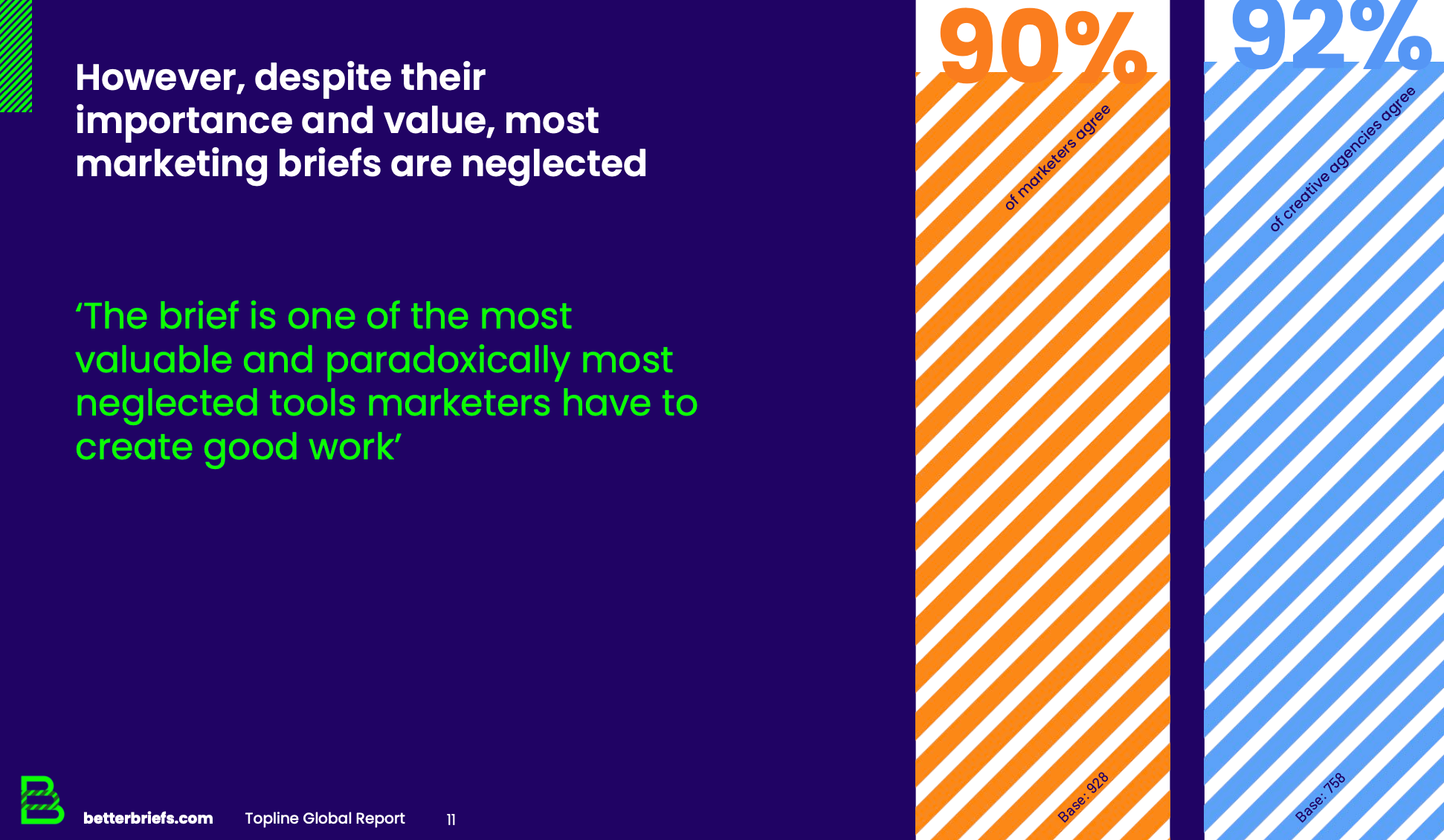
82% of marketers and 83% of creative ago agencies agree that writing briefs is hard, regardless of their years of experience, so that's one of the reasons, but why?
Q2. Where does the problem originate?
Marketers and agencies are in violent disagreement on this one. As the report puts it 'marketers and agencies are on different planets'. Most marketers naturally think they're capable at writing briefs, but very few agencies think the briefs they receive are effective.
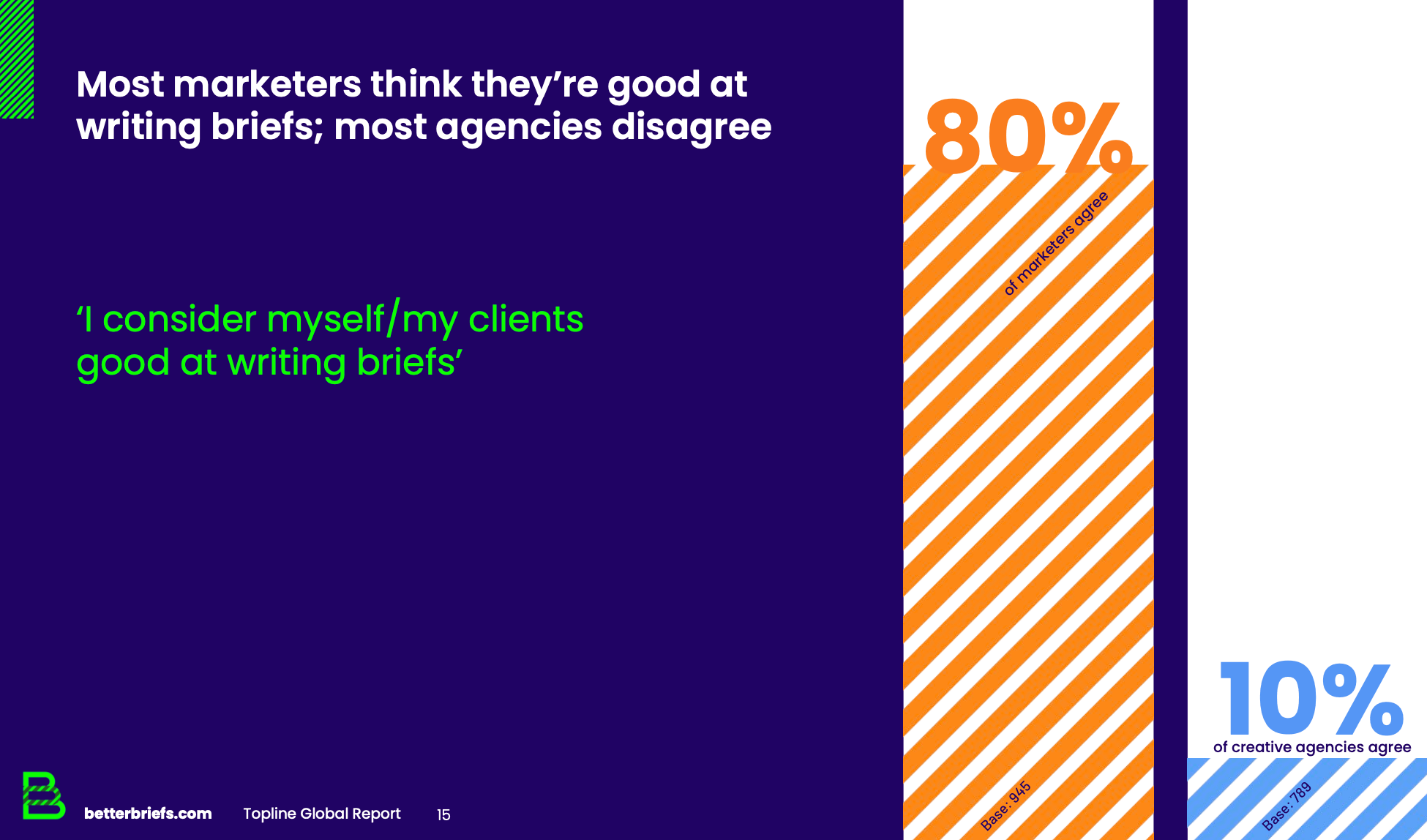
This quote, by a marketer highlights the typical problem:

Q3. So what is the problem with the briefs received by agencies?
The extent of the problem with briefs is shown by looking at specific problems that agencies see with briefs. The fact that many think they are unfocused and unclear is clearly a problem, indeed only one third think they are useful.
I'm not sure it is the role of a brief to entertain the agency so is it necessarily a problem if the brief is dull or uninspiring. I'm not sure, but we would expect that, a well crafted, inspiring brief is more likely to inspire more effective recommendations.
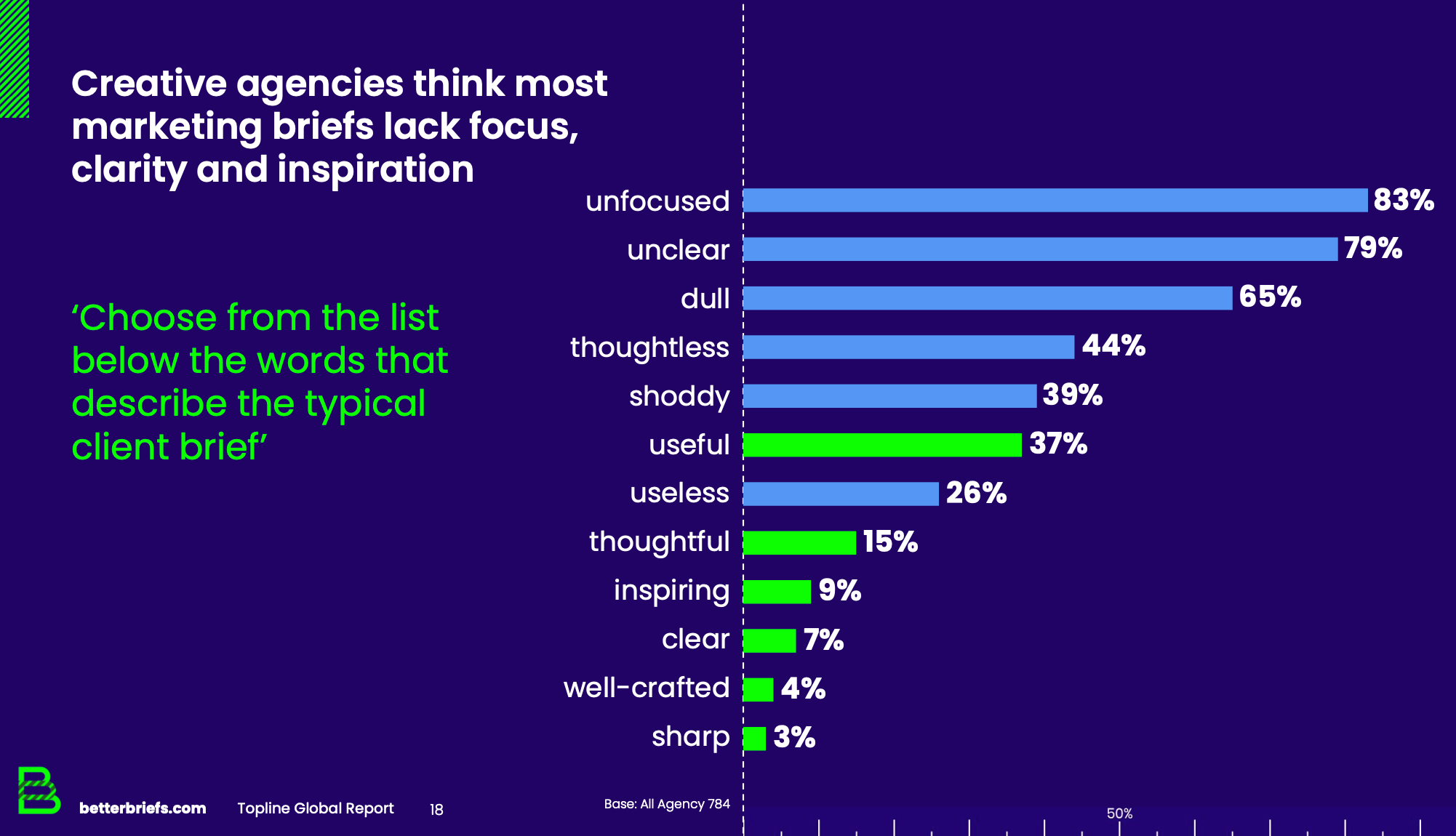
Drilling a little deeper, these problems of lack of strategic direction and lack of clear objective or outcomes are of particular concern which has been highlighted by the article in Marketing Week by Mark Ritson that alerted me to this research.
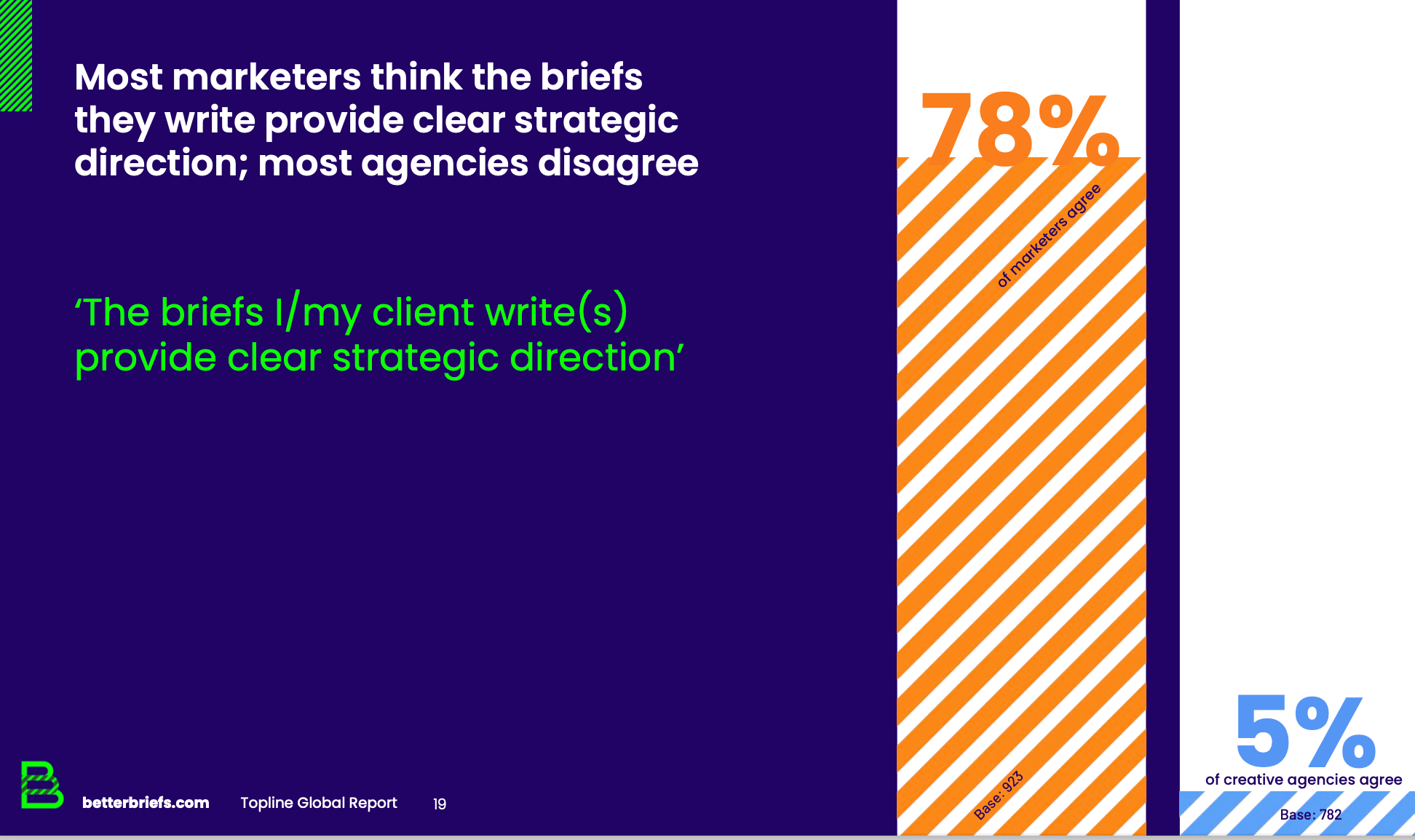
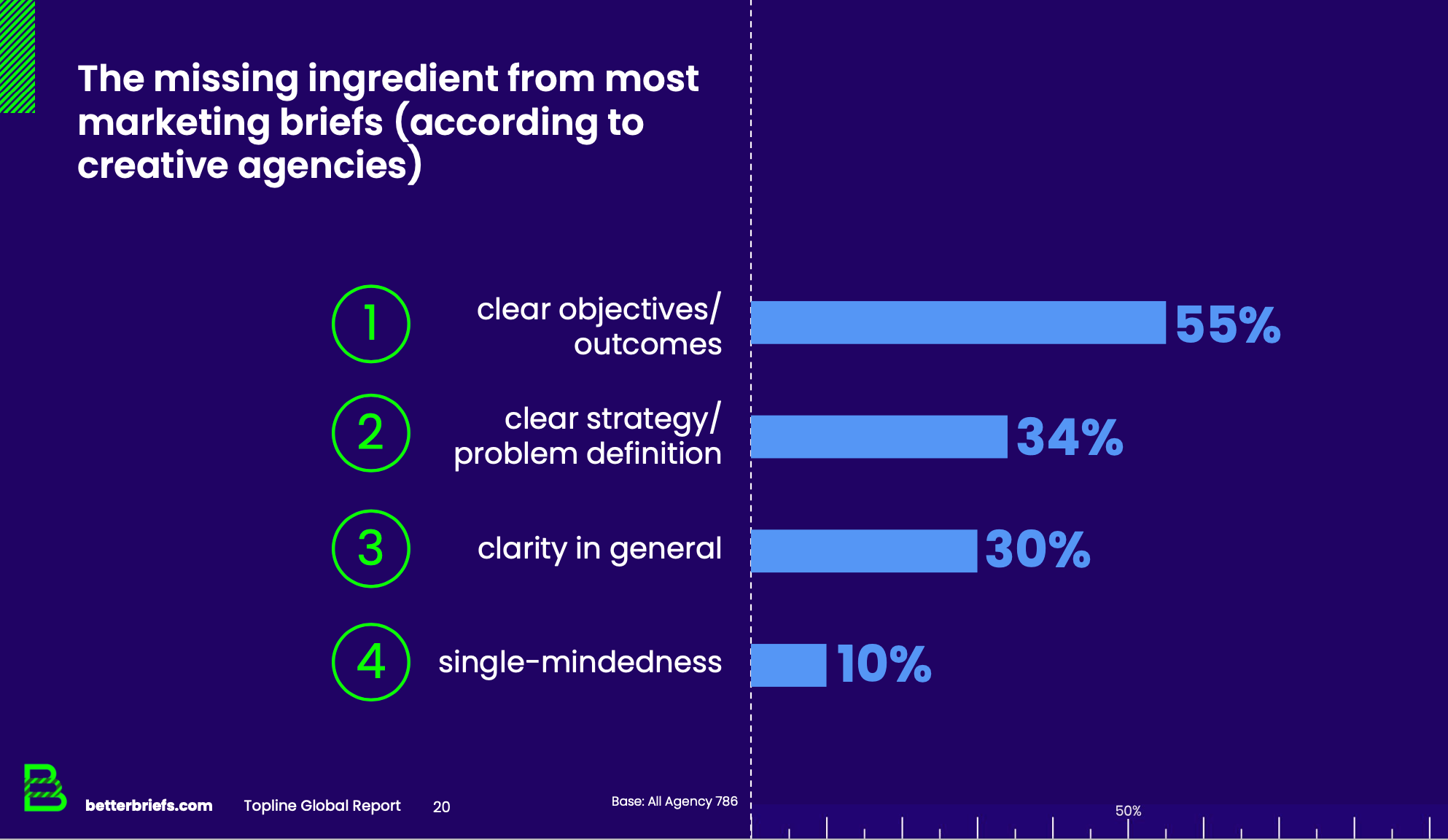
The report goes on to examine how this often leads to the need to re-brief with the concomitant issues of time lost, increased cost, confusion and demotivation.

Q4. How can marketing campaign briefs be improved?
The report then goes on to see some useful, but obvious suggestions.
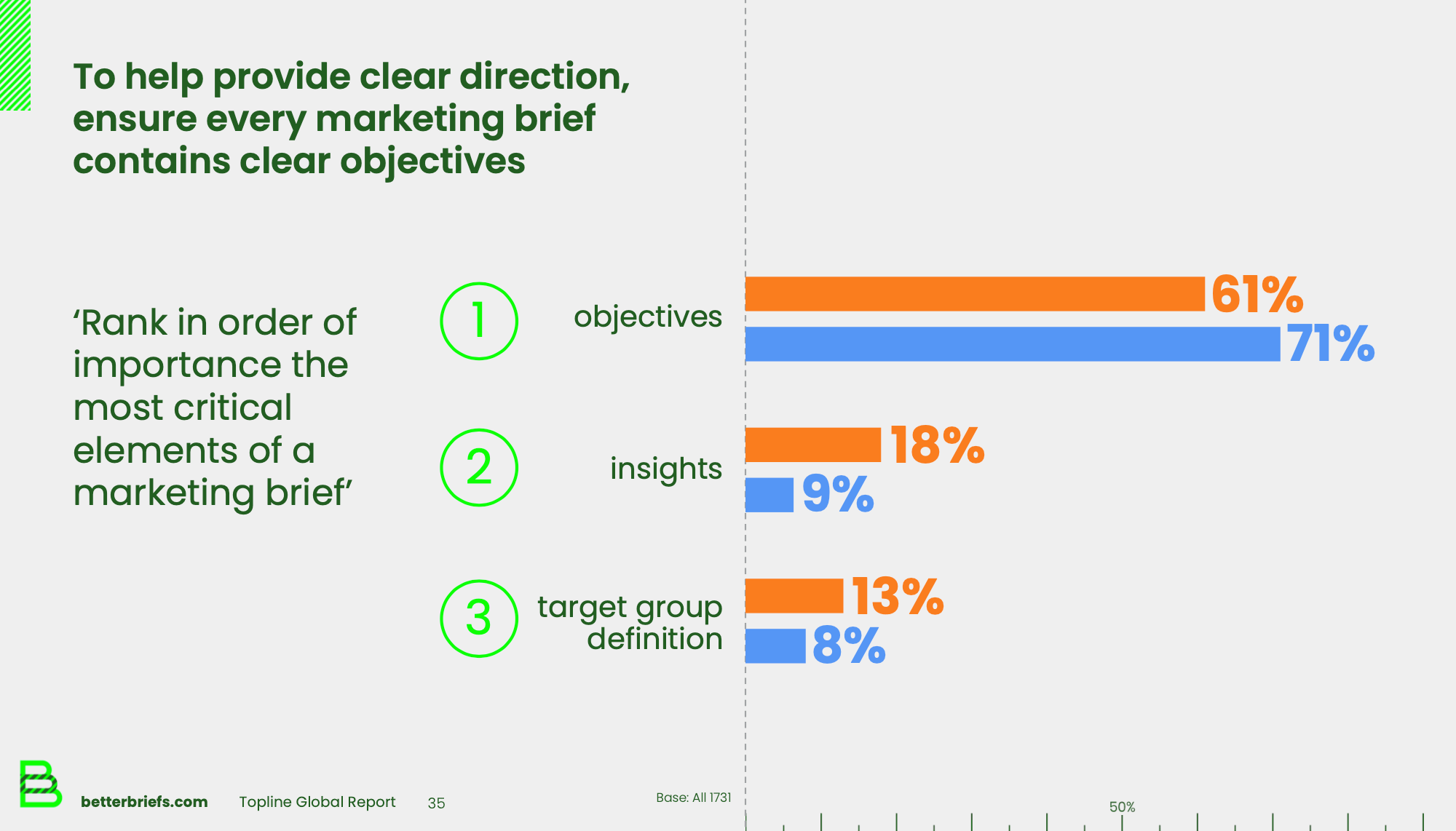
Our marketing campaign brief template covers all of these, with suggestions on how to set SMART objectives and define target groups effectively. It gives an overall structure to follow, or to use to refine your existing process. There is certainly a problem with structure according to the research:
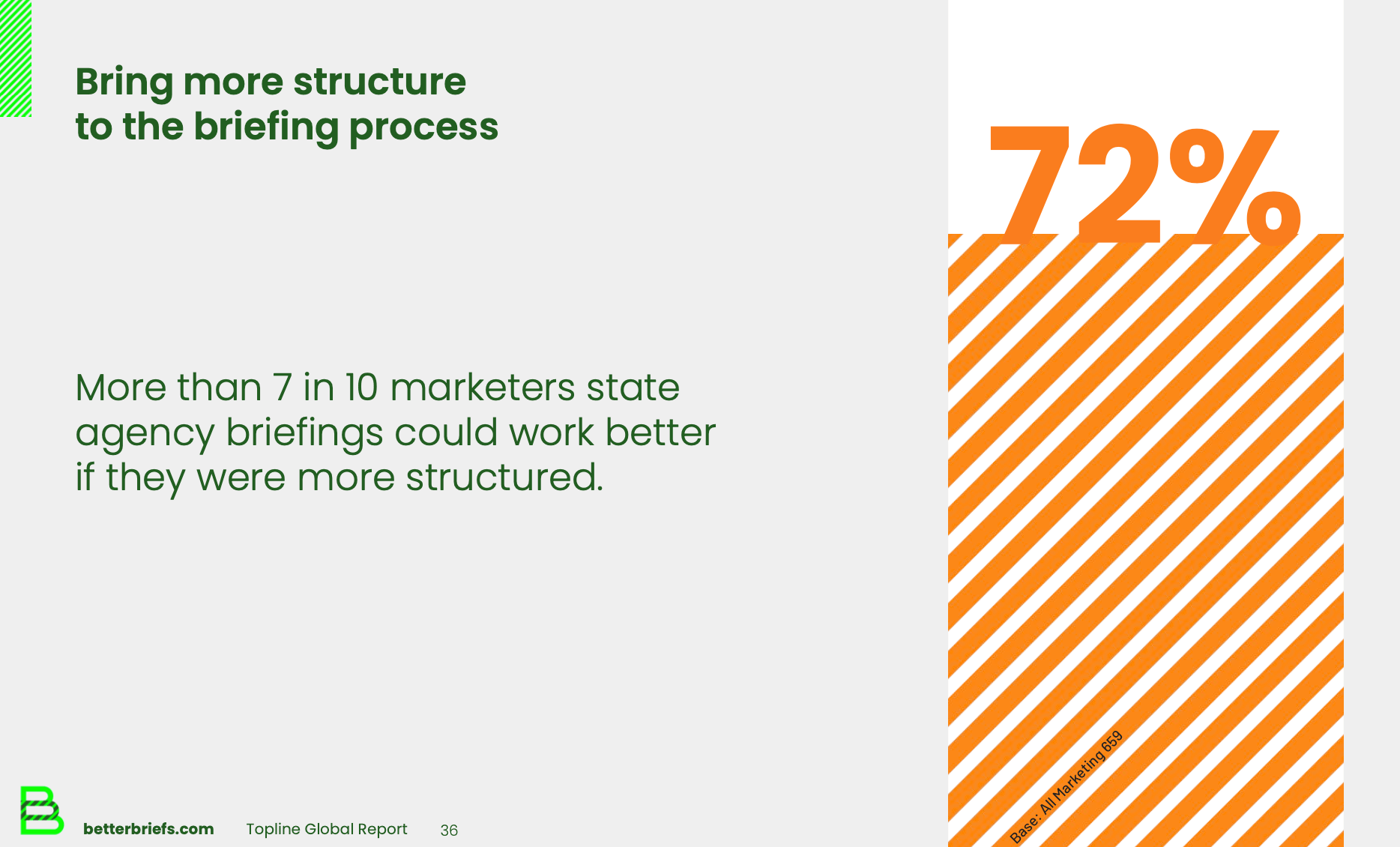
Another useful point for consideration is who should be signing off the brief it was felt by 50% of agencies, that half the time the right people aren't signing off the marketing briefs internally, which seems crazy given the amount of investment which will be signed off to implement the briefs.
Overall, it's a useful, action-provoking report, although it's light on some of the details to improve. For example, integration with existing digital assets and customer lifecycle journeys isn't addressed; it's as if they agency has to restart or hit reset with every new campaign.
Learning more about how to structure and effective marketing campaign
You can learn more about our recommendations for structuring campaign plans in our dedicated Learning Path module:
Campaign Planning Learning Path module learning objectives:
- Define the essential parts of a marketing campaign plan
- State the difference between a campaign brief and campaign plan
- Determine the key deliverables from each part of the campaign
Core Module

How to structure a campaign plan
Part of the Marketing campaign planning Toolkit
Learn how to structure a marketing campaign plan or brief
Learn More
Download the Better Briefs report for more information.


















